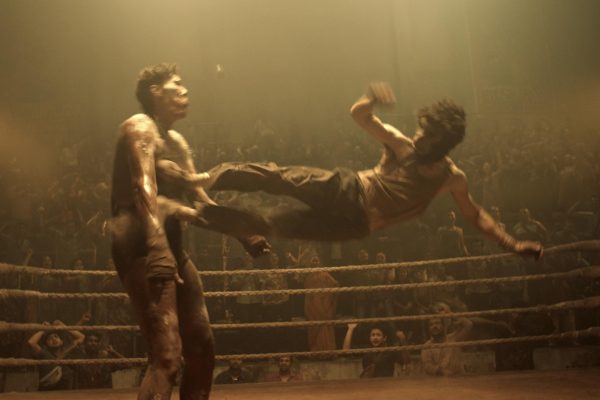French film stirs up feminist ideas
April 23, 2018
Netflix’s new original French film “I Am Not an Easy Man (Je Ne Suis Pas un Homme Facile)” gives a humorous glimpse into what the world would look like if gender roles were completely reversed and sheds light on the everyday struggles of women in the workplace.
The film hit Netflix streaming on April 13 and focuses on Damien, played by Pierre Benezit, a rampant chauvinist who views women as commodities for his pleasure. He’s condescending, cat calls and often sweet talks female coworkers into bed with him. While walking home one day, he runs into a metal pole while staring down some women in the street, and when he wakes up, he finds the society he was comfortable in has been replaced by one where women call the shots.
While overall the film maintains a light, comedic tone, it tackles some very serious and pressing issues when it comes to the treatment of women in contemporary society and culture, such as women being valued only for their appearances and the favoring of male ideas over those of women in a professional environment.
At first, Damien enjoys the sexual attention he gets from the female higher-ups at his company, he soon grows exhausted with his work being undermined and his appearance being policed. His ideas are dismissed, and he’s treated with condescension and disdain by his female counterparts. It’s refreshing to see these topics expressed so bluntly on screen, especially in the wake of the #MeToo movement that has brought light to the struggles women face in workplace environments.
When he tries to speak about the harassment he encounters, he’s asked, “People buy you drinks and give you compliments. What do you have to complain about?” These sentiments will ring familiar to women who have attempted to speak up about their experiences with sexism, but their words fell on uncaring ears.
Each scene brings something new to the table, raising awareness for the everyday frustrations of being female, some seemingly inconsequential, some deeply damaging. In one scene, Damien talks to a teenage boy who restricts his diet to keep his figure in shape. The boy relays an experience where a female classmate cornered him in a bathroom, and he“had no choice” but to engage in the sexual acts that followed.
There’s a deep undercurrent of emotion that tinges many of the scenes in the film as male characters reckon with the powerlessness they feel in the face of situations they have no control over. The distraught performance by Benezit in particular speaks to a longing for a world where both men and women have complete autonomy in their professional and dating lives.
It’s by no means a perfect film. A contemporary feminist of a certain school of thought will find it discouraging that in the film’s universe, women still need to obtain “masculine” characteristics to be dominant. Traditionally “feminine traits” like wearing makeup and taking care of children are still devalued — men are simply the ones in these roles now. Some would find it far more empowering to see women taking control in ways that don’t dismiss how powerful and capable women already are— they don’t need to dress and act like men to realistically command a workplace.
However, the film is successful in speaking to the relentless sexism that occurs both behind closed doors and out in the open. It’s a tired argument that feminism is no longer necessary, and women have made enough strides to be fully equal to men; this film illuminates the inequalities that still exist and continue to keep women from reaching their full potential.
It’s worth the watch simply for the sake of analyzing how far women have come in the battle to acquire equal treatment, as well as to see how much work still needs to be done.












